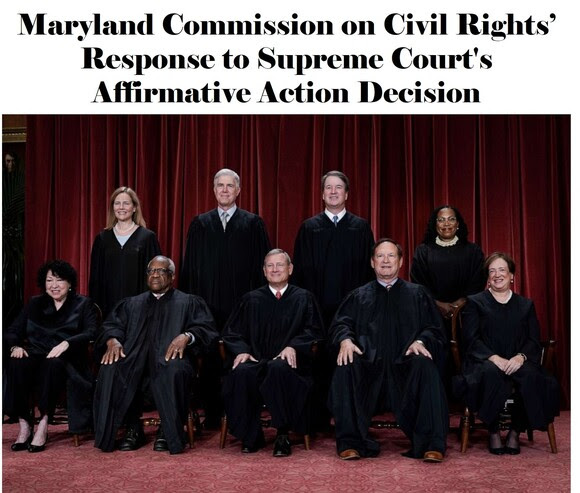Update on Previous Fair Lending Post:
Advocates Urge Maryland to Adopt a State CRA Law to Increase Racial Equity & Reinvestment
The following is a summary of a whitepaper by Josh Silver of the National Community Reinvestment Corporation (NCRC) entitled "A Maryland CRA Law Would Marshall Considerable Resources for Increasing Racial Equity and Reinvestment." In this article, Silver presents reasons why Maryland should adopt its own state Community Reinvestment Act (CRA). This article was referenced in the June 23, 2023 NCRC Just News. Download the whitepaper.
Economic Action Maryland has released a Policy Brief that advocated a Maryland CRA Law. Economic Action Maryland, the NCRC, and other housing advocates plan to push for the legislature to pass a bill in the 2024 Session. Del. Melissa Wells (D-Baltimore City) introduced legislation this year to propose a state-level community reinvestment act, but withdrew it.
The Major Points of the Whitepaper & Policy Brief
(1) A Maryland CRA law would apply to banks and credit unions with about $46 billion in assets. It would cover mortgage companies that made more than 68,000 loans in three years. The assets and lending activity are considerable resources that should have a CRA obligation for reinvesting in underserved neighborhoods.
(2) A state CRA law would help narrow racial and equity gaps in lending. In Baltimore, for example, 33% of recent loans went to African Americans whereas they constituted 62% of the population.
(3) State law can plug gaps in the federal law. The federal CRA applies to banks, whereas other state laws in Massachusetts and Illinois also apply to mortgage companies and credit unions.
Impact of a Maryland CRA Law
A state CRA law would apply CRA to institutions with tens of billions of dollars which offer tens of thousands of loans. State-chartered banks have about $38 billion in assets and state-chartered credit unions have nearly $8 billion in assets. The top ten independent mortgage companies issued almost 68,000 home purchase loans in Maryland during 2018-2020.
Applying CRA to institutions with these large resources would channel significant increases in loans and investments to neglected communities in Maryland. A state CRA law is needed to address sizable racial and income disparities in access to loans. In all of Maryland, lenders made 20% of their single-family loans to African Americans in 2018-2020 while 29% of the population was African American. The gap is even wider in Baltimore, which is 62% Black but where only 33% of loans went to African American borrowers.
While some gaps have narrowed slightly, underserved communities continue to suffer. For the whole state, lending institutions made 32% of their loans to low- and moderate-income (LMI) borrowers during 2018-2020 while 31.6% of the population was LMI. A significant disparity is in Baltimore where LMI borrowers received 58% of the loans but were 73% of the residents.
A state law would complement rather than duplicate federal law, as the experience of other state CRA laws have demonstrated. It can address needs and neighborhoods not explicitly addressed by the federal CRA. A state law could authorize Maryland’s Commissioner of Financial Regulation to conduct separate exams for individual counties. This would enable examiners to assess performance more rigorously in Baltimore and underserved rural counties. In contrast, federal CRA exams usually rate performance on a metropolitan level that hides poor performance, which most often occurs in the underserved counties. In addition, a CRA law could require the examiners to assess the sustainability of lending by considering default and delinquency rates. This is very important for underserved communities and is frequently overlooked by federal CRA exams.
A Maryland state law could contain provisions designed to counter CRA ratings inflation and that would motivate improvements in performance to communities of color. On a federal level, the pass rate of banks on their CRA exams is 98%. A state law should counter this inflation by introducing a fifth rating and by requiring examination of performance in underserved neighborhoods, which are disproportionately communities of color. By law, banks that fail their exams cannot receive deposits from a state agency. The Commissioner could also adjust fees based on ratings received.
Studies have shown that the federal CRA has increased lending and banking services in modest income communities. A state CRA law would expand and widen this. The gains in wealth from a rigorously enforced CRA, driven by homeownership and small business ownership, would benefit Maryland through higher gross domestic output, higher tax revenues, and reduced dependence on the state safety net.
Sources:
Read the June 13, 2023 NCRC article.









